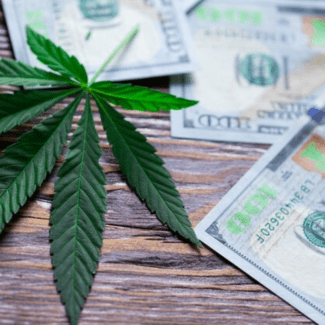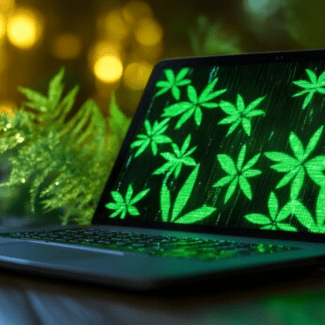5 Surprising Uses for Industrial Hemp
Industrial hemp, a versatile plant with a rich history, is being rediscovered for its myriad applications beyond just its psychoactive properties. From sustainable building materials like hempcrete to eco-friendly plastics, biodiesel fuel, nutritious food options, and durable clothing, the potential uses of hemp are vast. With the recent resurgence in the industry following regulatory changes, innovative approaches are emerging to fully harness this remarkable plant’s capabilities. However, challenges such as infrastructure development, regulatory compliance, and societal perceptions remain as the hemp industry continues to evolve.

What can’t cannabis do? This plant is genuinely an ancient one that has evolved alongside humankind. But it wasn’t just around so our ancestors could get high — it was a multipurpose plant that could provide food, fibers, and building materials, in addition to its medicinal and spiritual value.
Since the passage of the 2018 Farm Bill, the industrial hemp industry has seen a resurgence, and the plant is back on the rise. While we’re rediscovering old ways our ancestors used the plant, today’s industry is also coming up with some surprising and ingenious new ways to use the plant.
5 Surprising Uses for Industrial Hemp
Industrial hemp is a hardy plant; low maintenance, capable of surviving in even poor soil conditions, and sustainable, taking just a few months to reach harvest age. Every part of the hemp plant can be used, making this a potential crop of the future.
1. Hempcrete
Hempcrete is lighter than traditional concrete and made from biocomposite materials. It is moisture-resistant, has thermal insulation properties, and is fire and pest-resistant. Hempcrete isn’t brittle like concrete, and its light weight means it’s easy to transport and move. But don’t let that fool you; hempcrete is stronger than steel.
Hempcrete isn’t the only way you can use hemp in a building project — it can also be manufactured into insulation, fiberboard, and even hemp “wood,” which we can use for framing or flooring.
2. Plastic
What if we could stop using fossil fuels to create materials that don’t decompose? Hemp plants, specifically the cellulose in hemp stems, can be used to make bioplastic, a plastic replacement material. Plastic made from hemp is compostable and biodegradable — a considerable advantage over plastic made from fossil fuels. It’s also a carbon-neutral resource because the plant stores carbon during its life cycle.
Fun fact: Henry Ford once made a car that was built in part from hemp.
3. Fuel
Taking it a step further, what if we could replace all uses of fossil fuels? Hemp can be processed into biodiesel, which can power most machines. It’s not an exceedingly popular use for industrial hemp yet, but it is a potential alternative to fossil fuels and electric vehicles. And Henry Ford’s hemp car also ran off of fuel made from hemp!
4. Food
The hemp seed has a high-fat content and is a good source of omega-6, omega-3, and protein. You can eat unshelled hemp seeds, use them in recipes, or process them into a final product like hemp protein or hemp seed oil. Furthermore, Hemp seed oil can replace olive or coconut oil in most cases.
But the seeds aren’t the only edible part of the plant. You can also use the leaves to make tea, process it into hemp milk, or ferment it into alcoholic beverages.
5. Clothes
This idea is a more traditional, less surprising use for the hemp plant, but it’s essential nonetheless. Hemp has been used to make fabric for millennials— we’re just coming full circle back to a secret our ancestors already knew. While hemp was once considered a rough, working material, today’s manufacturing processes make it a soft, durable material (it’s next season’s hottest look.)
Pros and Cons for Growing Industrial Hemp
Sure, hemp may seem like a miracle plant. But as with all things in the cannabis industry, there are pros and cons to know before you jump in.
Infrastructure
Since the cannabis industry is still emerging (that’s the pro), its infrastructure remains at an infancy stage (that’s the con). Pioneers in any niche face the challenge and the opportunity of shaping the industry.
Right now, there’s a lack of infrastructure for manufacturing hemp in the ways listed above. Brave entrepreneurs are tackling this challenge every day, and it won’t be long until you see processed hemp products in every aspect of your life.
Regulatory Compliance
Hemp is federally legal, but you can’t just put seeds in the ground and sell your crop. You have to have a license and comply with FDA regulations, as well as any statutes at your local or state level.
Since regulations vary on the local, state, and federal levels, cannabis companies must navigate these confusing rules daily. Regulators are working vigorously to establish more solid compliance standards so that this confusion won’t last forever.
Rigid Testing Requirements
Cannabis products require specific lab testing to be sold on the market, and industrial hemp isn’t any different. While these requirements create more market uniformity, hemp seeds are hard to get ahold of or process domestically.
In fact, most hemp used in the US is currently imported. You also risk growing a “hot crop” where it tests for higher levels of THC than is federally allowed. And unfortunately, if you have a hot crop, it’s typically destroyed, taking with it your profits.
Societal Expectations
Despite the world (and society) changing at lightning speed, the cannabis industry continues to face negative stigma and incorrect ideas about hemp. Establishing a business you know will have a positive impact can be challenging if there’s a lack of support in your community. Breaking through these misconceptions can be tricky, and it takes all of us— but we make progress every day.
Joining A Movement
Sure, growing hemp to join a movement isn’t the business reason to get into it, but what about personal fulfillment? The cannabis industry runs off of passionate people, and industrial hemp could be no different. Joining the movement of revitalizing hemp is joining something bigger than one person or farm — it’s a step forward in a positive new direction for everyone.
Protecting your cannabis company can seem confusing; however, we’re a full-service insurance brokerage working with carriers worldwide to offer you the best coverage possible. We’re here to help! Please reach out to us today by emailing info@alpharoot.com or calling 646-854-1093 for a customized letter of commitment or learning more about your cannabis insurance options.




